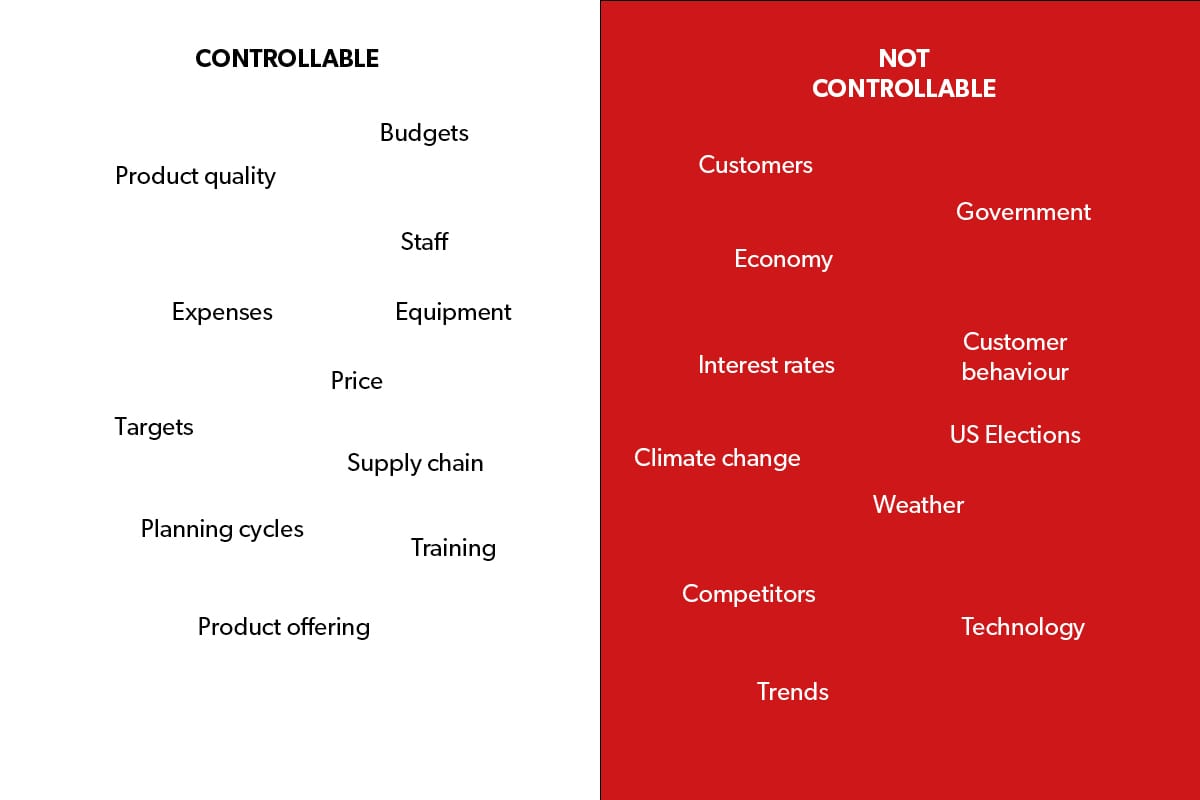How to understand strategy better
Good strategy is rare probably because what it actually is, and what it's used for, is misunderstood.
In our experience the word 'strategy', and the term 'strategic,' are thrown around a lot these days, but in so many cases it's obvious that behind the use of the word there isn't a clear understanding of what strategy actually is. Most of what passes for strategy is really just simple goal setting, that for obvious reasons, ends up getting a poor reputation for ineffectiveness.
Good strategy is rare.
Business leaders are often guilty of performing tasks , which they label 'strategic', but sadly these practices are anything but.
- Planning activities are wrongly called strategy...but planning is NOT strategy.
- Budgeting activities are wrongly called strategy...but budgeting is NOT strategy.
- Purpose statements, missions, visions, SWOT and values exercises are wrongly called strategy...they are NOT strategy.
- KPIs, OKRs, goals, milestones etc. etc. are all wrongly called strategy...but once again, these things are also NOT STRATEGY.
To actually understand and see strategy better (to identify it properly) it's useful to illustrate how useful it is in solving specific problems.
So here's how you can look at strategy differently as a discipline so that it makes more sense.
In life (and in business) there are things that you can control, and there are things that you cannot control.
What gets classified as controllable and not controllable is completely subjective. For example; the US government sphere of influence is far greater than that of MTN cellular - so what does into their respective controllable / not controllable buckets will be very different.

What you can control
You can control what you spend on equipment and raw materials. You can control the quality of the products that you produce. You can control how many stores you open in a calendar year.
These controllable things have a material impact on the long-term commercial success of a business and because of this they are normally carefully managed and improved through planning.
What you cannot control
You cannot control the behaviour of your customers. You cannot control what's happening in government, or in the economy. You cannot control what your competitors are up to. You cannot control when the next pandemic will happen or what's happening in the Middle East or the political situation in China.
Even though these things cannot be controlled, they too can have a significant impact on the performance of a business. In fact, in many cases they can seriously limit the progress of an organisation, far exceeding the impact that 'the controllable things' have and because of that there is significant value in dealing with them better through strategy.
This is where strategy becomes useful and where those that use it properly have the upper hand.
Strategy is a practice where you design a unified set of actions with the intention of influencing, or better responding to, problem factors that are not directly controllable, to achieve a preferable outcome.
It's the art and science of taking advantage of and better managing the uncontrollable.
You can't control the behaviour of your customers, but what you can do is influence the conditions under which potential customers experience your brand, which if done with insight and a deep understanding of certain positive behavioural triggers, can improve the probability that a customer will choose your brand instead of your competitor's.
You can't control whether or not a pandemic will disrupt business operations in the future (pandemics are too big and too powerful for one company to deal with), but you can prepare for the possibility that another pandemic will surface at some stage in the future, and proactively create the conditions in which your business gets an unfair advantage in the marketplace should it occur.
BTW - A great example of good strategy is the story of why there are mirrors in elevators which we shared on the site a few years ago.

Strategy is the selective approach you take to influence those conditions so that the future that you desire is more likely to be created. There are no guarantees that you'll succeed of course, but the more you practice the better you'll get at it.
Through the continuous practice of strategy and innovation much of what was previously not controllable does in time become more controllable through this transformation.
When should strategy be used?
Strategy is needed when you are faced with choices related to: constraints, uncertainty, contextual changes (social, technological, economic, environmental, political), customers, competitors or in the making of key decisions that are relevant to the medium- to long-term future of the organisation.
- To successfully find and attract more buyers for your products given that you don't have an unlimited marketing budget - you need a good strategy.
- To capture more marketshare than your competitors do this year - you need a good strategy.
- To develop the right products, services and channels that successfully meet with what customers might demand in the future - you need good strategy.
But here's the rub
The reason that good strategy is so rarely practiced by businesses is that the type of thinking required to 'do proper strategy work' is vastly different from the widely-accepted kind of thinking required to manage and optimise a business to operate efficiently.
Linear, analytical thinking useful in the management of things that can be controlled (which is by far the most dominant way of thinking in the world) is of very little use when making decisions based on limited evidence, and while facing uncertainty.
All strategy is future-orientated; yet there are no facts, no data, no hard evidence that can be used to inform decision-making in this realm. Because of this most business leaders are very reluctant to step out of their empirically-orientated comfort-zone into the wild complexity of strategic thinking. This is primarily why it is neglected and rejected.
But subconsciously rejecting a powerful tool because it makes you feel uncomfortable is a poor reason to willingly put a business at a significant disadvantage.
Need to develop your strategic thinking practice?
Build your brand better in 2024 with our structured 12-week program of strategy development for you and your team.
Get in touch to discussImportant strategic questions to ask
So now that we have established that strategy is useful in addressing identified critical challenges to a business that are out of its direct control - there are two important questions that can be asked of an identified challenge / opportunity that will get your mind moving in the right direction to address that issue strategically.
The questions are:
(1) 'Under what conditions, will the ideal outcome that we want, be most probable?' and (2) 'How might we best create those conditions?'
Can you possibly tip the scales in your favour?
The good news
The good news is that because so many businesses totally suck at strategy, those that do take an active practice of strategy and developing strategic thinking seriously will stand a far better chance of outperforming their competitors.
If winning in a competitive marketplace is important to you (which it should be if you want to survive), then developing your competence in strategy must be a priority.


